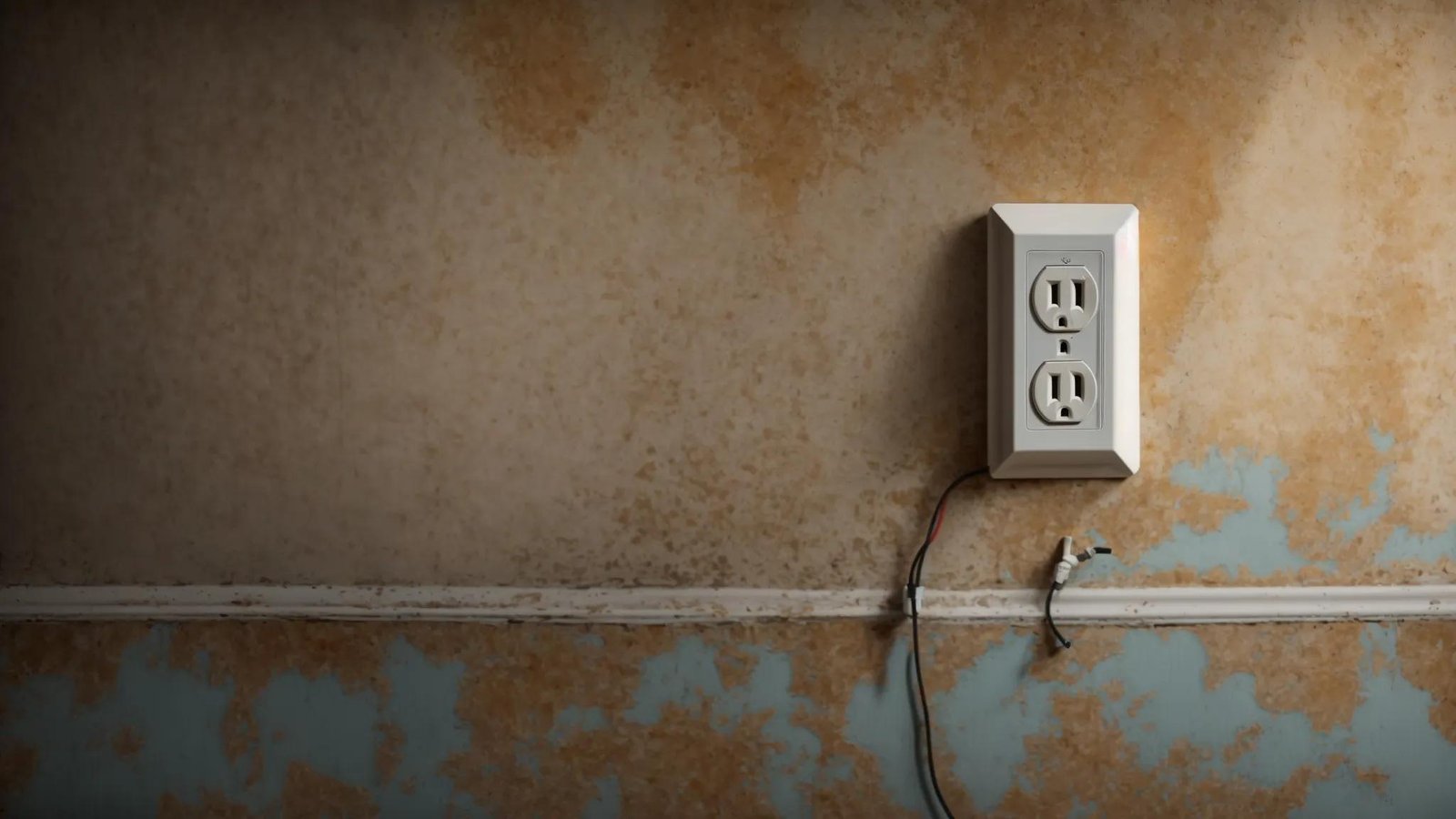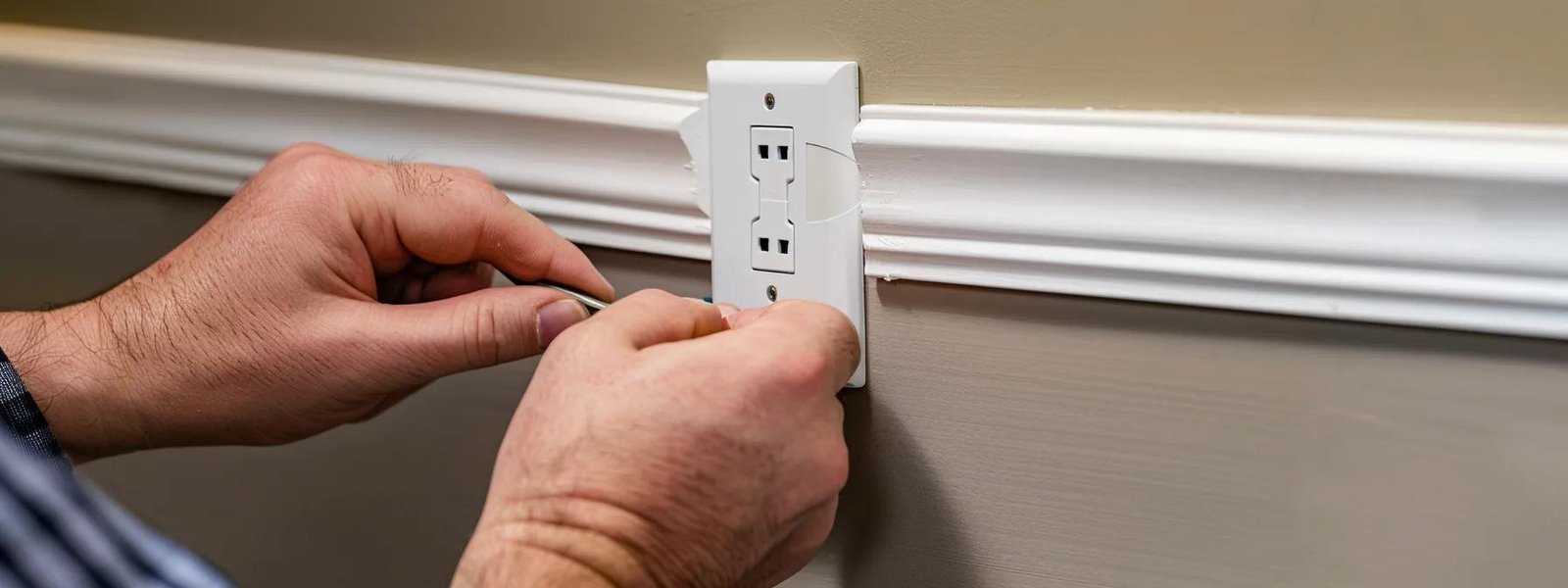
Many homeowners in older houses face grounding issues that can lead to electrical problems and safety hazards. This guide will cover the importance of grounding, how to identify grounding problems, and the steps to assess and fix your home’s grounding system. By understanding these key points, readers will learn how to ensure their electrical systems comply with the national electrical code, reduce voltage risks, and enhance safety. Addressing grounding issues can prevent costly electrical diagnostics and protect your home from potential dangers.

Electrical grounding refers to the process of connecting electrical systems to the earth, ensuring safety and stability. Proper grounding protects homes and families from electrical hazards, such as open ground issues and ground loops. This section will explore common grounding methods found in older residences, including the use of metal and bronze components, electrical diagnostics, and the role of circuit breakers in maintaining safety.
Electrical grounding is the process of connecting electrical systems to the earth, which helps to prevent electrical shocks and fires. In older homes, grounding often involves the use of copper wires and components that may be soldered together to create a reliable connection. This connection is crucial for reducing electromagnetic interference and ensuring that electrical frequencies remain stable, ultimately protecting both the home and its occupants from potential hazards.
Grounding plays a vital role in protecting homes and families by providing a safe path for excess electricity to flow into the earth. This is especially important for older homes where outdated wiring may not effectively manage electrical surges. Proper grounding ensures that electronics, such as televisions and computers, receive a stable power supply, reducing the risk of damage and preventing potential hazards like electrical shocks.
Common grounding methods in older residences often include the use of metal water pipes, ground rods, and concrete-encased electrodes. Electricians frequently find that these methods may not meet current safety standards, especially in basements where moisture can affect connections. For instance, a neon lamp may flicker if grounding is inadequate, indicating a need for a thorough inspection and possible upgrades to ensure safety and reliability.

Identifying grounding problems in older homes is essential for ensuring safety and functionality. Homeowners should be aware of signs indicating grounding issues, such as unusual noise or equipment pickup. Faulty grounding can lead to serious hazards, including electrical shocks and fires. Additionally, aging electrical systems may exacerbate these problems, making it crucial to assess and address grounding conditions promptly.
Homeowners should be vigilant for signs that may indicate grounding issues in their older homes. Common indicators include frequent tripping of circuit breakers, flickering lights, or unusual buzzing sounds from electrical outlets. These symptoms often suggest that the grounding system is not functioning properly, which can lead to serious safety hazards such as electrical shocks or fires. Addressing these issues promptly with the help of a qualified electrician can ensure a safer living environment and protect valuable electronics from damage.
Faulty grounding can lead to significant hazards in older homes, including electrical shocks and fire risks. When grounding systems are inadequate, excess electricity may not have a safe path to the earth, which can cause appliances to malfunction or even create dangerous conditions. Homeowners should be aware that these issues can escalate quickly, making it essential to have a qualified electrician assess and upgrade grounding systems to ensure safety and reliability.
Aging electrical systems can significantly impact the effectiveness of grounding in older homes. Over time, wiring may deteriorate, connections can weaken, and outdated components may fail to meet current safety standards. This deterioration can lead to inadequate grounding, increasing the risk of electrical shocks and fires, making it essential for homeowners to have their systems evaluated by a qualified electrician to ensure safety and reliability.

Evaluating the grounding system of an older home involves several key steps to ensure safety and functionality. Homeowners should be familiar with essential tools for grounding inspection, which can aid in identifying potential issues. Additionally, knowing when to consult an electrical professional is crucial for addressing any grounding concerns effectively. This section will provide practical insights into these topics, helping homeowners maintain a safe electrical environment.
To evaluate the electrical grounding system of an older home, homeowners should start by inspecting the main electrical panel for proper grounding connections. They should look for grounding wires that are securely attached to the panel and trace them to their grounding source, such as ground rods or metal water pipes. If any signs of corrosion or loose connections are present, it is advisable to consult a qualified electrician to ensure the grounding system meets current safety standards and effectively protects the home from electrical hazards.
To effectively assess the grounding system of an older home, homeowners should utilize essential tools that aid in identifying potential issues. A multimeter is crucial for measuring voltage and continuity, helping to ensure that grounding connections are secure and functioning properly. Additionally, a clamp meter can be used to measure the current flowing through grounding conductors, providing valuable insights into the system’s performance and safety.
Homeowners should consult an electrical professional when they notice signs of grounding issues, such as frequent circuit breaker trips or flickering lights. These symptoms often indicate that the grounding system is not functioning properly, which can lead to serious safety hazards. Engaging a qualified electrician ensures that the grounding system is thoroughly evaluated and upgraded to meet current safety standards, providing peace of mind and protecting the home from potential electrical hazards:

Addressing grounding issues in older homes involves several key upgrades to enhance safety and compliance. Homeowners should consider upgrading to a modern grounding system, replacing two-prong outlets with three-prong outlets, and installing Ground Fault Circuit Interrupters (GFCIs). Additionally, updating the electrical panel can improve grounding effectiveness, ensuring compliance with current electrical codes.
Upgrading to a modern grounding system is essential for enhancing safety in older homes. This process typically involves installing new grounding rods, replacing outdated wiring, and ensuring that all electrical components meet current safety standards. By making these upgrades, homeowners can significantly reduce the risk of electrical shocks and fires, providing peace of mind and protecting valuable electronics from damage:
Replacing two-prong outlets with three-prong outlets is a crucial step in addressing grounding issues in older homes. This upgrade not only enhances safety by providing a proper ground connection but also allows homeowners to use modern appliances that require three-prong plugs. It is essential to ensure that the electrical system is adequately grounded before making this change, as simply replacing the outlets without proper grounding can lead to potential hazards.
Installing Ground Fault Circuit Interrupters (GFCIs) is a critical step in addressing grounding problems in older homes. GFCIs provide an added layer of safety by quickly shutting off power when they detect an imbalance in electrical current, which can prevent electrical shocks. Homeowners should consider placing GFCIs in areas prone to moisture, such as kitchens and bathrooms, to enhance protection against potential hazards associated with outdated grounding systems.
Updating the electrical panel is a crucial step in fixing grounding problems in older homes. A modern electrical panel can enhance grounding effectiveness by providing a reliable connection to the grounding system, which is essential for safety. Homeowners should consider consulting a qualified electrician to assess their current panel and recommend necessary upgrades, ensuring compliance with current electrical codes and reducing the risk of electrical hazards.
Ensuring compliance with current electrical codes is essential for maintaining safety in older homes. Homeowners should be aware that outdated wiring and grounding systems may not meet modern standards, which can pose significant risks. Consulting a qualified electrician can help identify necessary upgrades to bring the electrical system up to code, ultimately protecting the home and its occupants from potential electrical hazards:

Addressing grounding issues in older homes requires careful attention to safety. Understanding the risks of DIY electrical work is crucial, as improper handling can lead to serious hazards. Homeowners should follow proper procedures for safe electrical repairs and prioritize using the right protective equipment. These practices ensure a safer environment while effectively resolving grounding concerns.
Understanding the risks of DIY electrical work is essential for homeowners addressing grounding issues in older homes. Many individuals underestimate the complexity of electrical systems, which can lead to dangerous situations such as electrical shocks or fires. Engaging a qualified electrician ensures that grounding problems are handled safely and effectively, protecting both the home and its occupants from potential hazards:
When addressing grounding issues in older homes, following proper procedures for safe electrical repairs is essential. Homeowners should always turn off the power at the main electrical panel before starting any work to prevent electrical shocks. Using insulated tools and wearing rubber-soled shoes can further enhance safety during repairs, ensuring that grounding systems are effectively evaluated and upgraded without risk.
Using the right protective equipment is essential when addressing grounding issues in older homes. Proper gear, such as insulated gloves and rubber-soled shoes, significantly reduces the risk of electrical shocks during repairs. Homeowners should prioritize safety by ensuring they are equipped with the necessary tools and protective items, as this not only safeguards their well-being but also enhances the effectiveness of the grounding system evaluation and upgrades.

Proper grounding in older homes enhances safety by preventing electrical fires and reducing the risk of electrical shocks. It also protects appliances and electronics from damage caused by power surges. Furthermore, a well-grounded system improves overall electrical performance, ensuring reliable operation of devices. Each of these benefits will be explored in detail, highlighting their importance for homeowners.
Proper grounding in older homes significantly enhances safety by providing a reliable path for excess electricity to flow into the earth, thereby preventing electrical fires. When grounding systems are effective, they reduce the risk of electrical shocks and ensure that appliances operate safely, minimizing the chances of overheating and potential fire hazards. Homeowners should prioritize grounding upgrades to protect their families and property from the dangers associated with outdated electrical systems:
Proper grounding in older homes is essential for protecting appliances and electronics from damage caused by power surges. When grounding systems are effective, they provide a safe path for excess electricity, preventing it from reaching sensitive devices. For instance, a well-grounded system can safeguard televisions and computers from voltage spikes, ensuring their longevity and reliable performance.
Improving overall electrical system performance in older homes is a significant benefit of proper grounding. A well-grounded system ensures that electrical devices operate efficiently, reducing the likelihood of malfunctions and enhancing their lifespan. For example, when grounding is effective, appliances such as refrigerators and air conditioners can function without interruption, leading to lower energy costs and improved reliability:
Understanding grounding issues in older homes is crucial for ensuring safety and preventing electrical hazards. Homeowners must recognize the signs of inadequate grounding and take proactive steps to upgrade their systems, such as installing modern grounding methods and replacing outdated components. By prioritizing proper grounding, they can protect their families and valuable electronics from potential damage. Ultimately, addressing these issues not only enhances safety but also improves the overall performance of the electrical system, making it a vital consideration for any homeowner.


